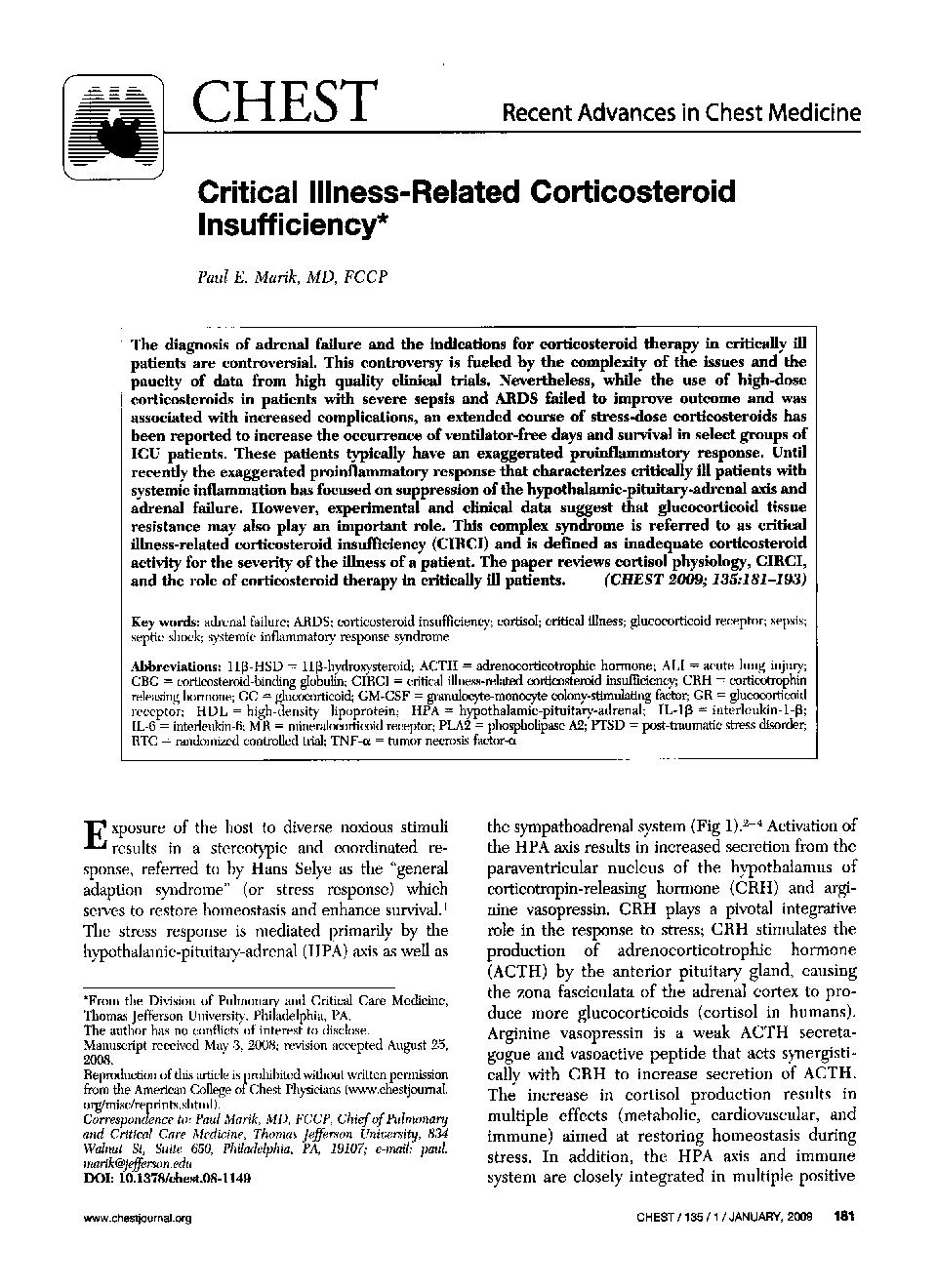| کد مقاله | کد نشریه | سال انتشار | مقاله انگلیسی | نسخه تمام متن |
|---|---|---|---|---|
| 2902548 | 1173374 | 2009 | 13 صفحه PDF | دانلود رایگان |

The diagnosis of adrenal failure and the indications for corticosteroid therapy in critically ill patients are controversial. This controversy is fueled by the complexity of the issues and the paucity of data from high quality clinical trials. Nevertheless, while the use of high-dose corticosteroids in patients with severe sepsis and ARDS failed to improve outcome and was associated with increased complications, an extended course of stress-dose corticosteroids has been reported to increase the occurrence of ventilator-free days and survival in select groups of ICU patients. These patients typically have an exaggerated proinflammatory response. Until recently the exaggerated proinflammatory response that characterizes critically ill patients with systemic inflammation has focused on suppression of the hypothalamic-pituitary-adrenal axis and adrenal failure. However, experimental and clinical data suggest that glucocorticoid tissue resistance may also play an important role. This complex syndrome is referred to as critical illness-related corticosteroid insufficiency (CIRCI) and is defined as inadequate corticosteroid activity for the severity of the illness of a patient. The paper reviews cortisol physiology, CIRCI, and the role of corticosteroid therapy in critically ill patients.
Journal: Chest - Volume 135, Issue 1, January 2009, Pages 181–193